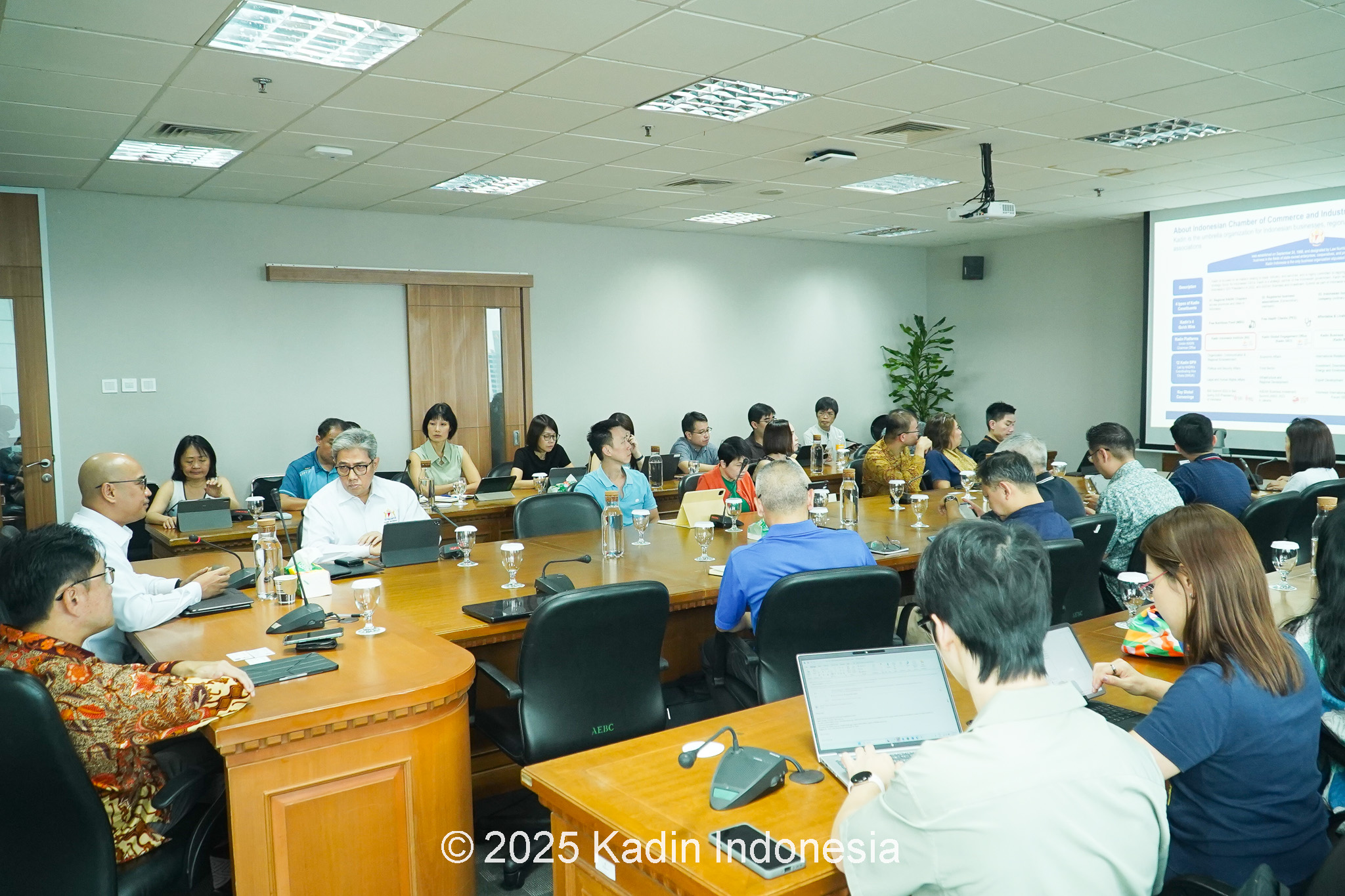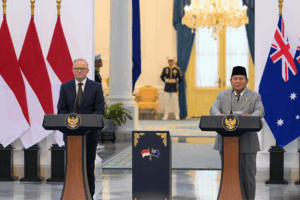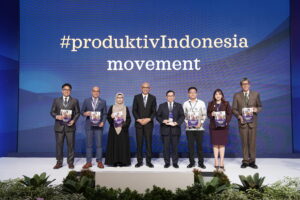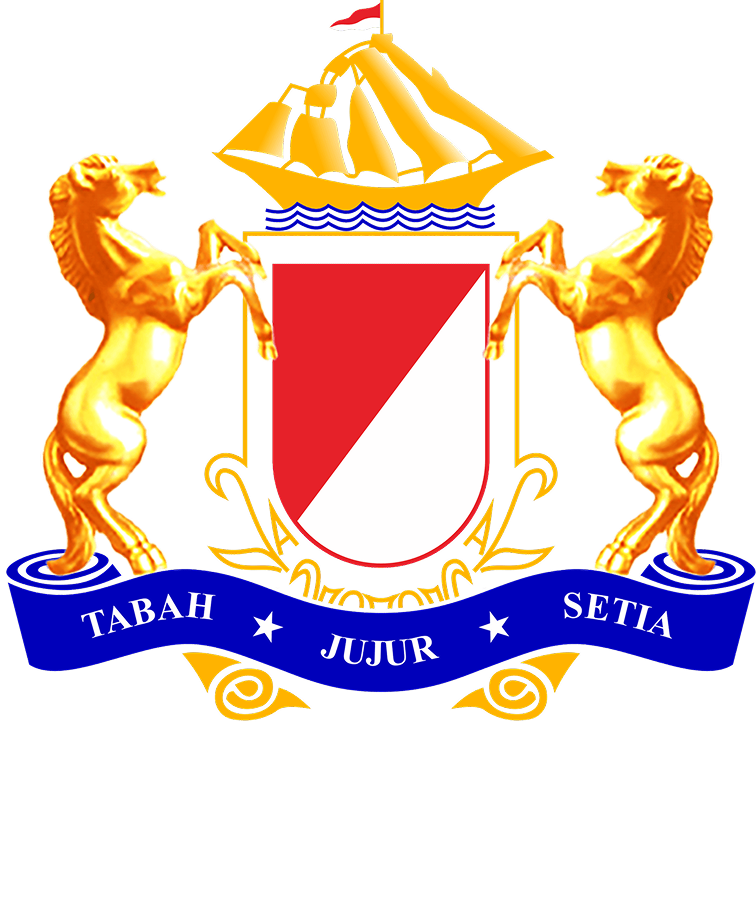Jakarta, 7 October 2025 – The Kadin Indonesia Institute (KII) hosted a business study tour and roundtable under the Local Urban Governance Programme (LUGP) organized by the Centre for Liveable Cities (CLC) Singapore. Themed “Strengthening Urban Resilience and Food Security through Public–Private Collaboration,” the session brought together key stakeholders to discuss Indonesia’s economic priorities, food system transformation, and sustainable urban development. The dialogue explored how stronger public–private partnerships can advance the government’s Asta Cita vision and accelerate inclusive national growth.
About the Organizers and Delegation
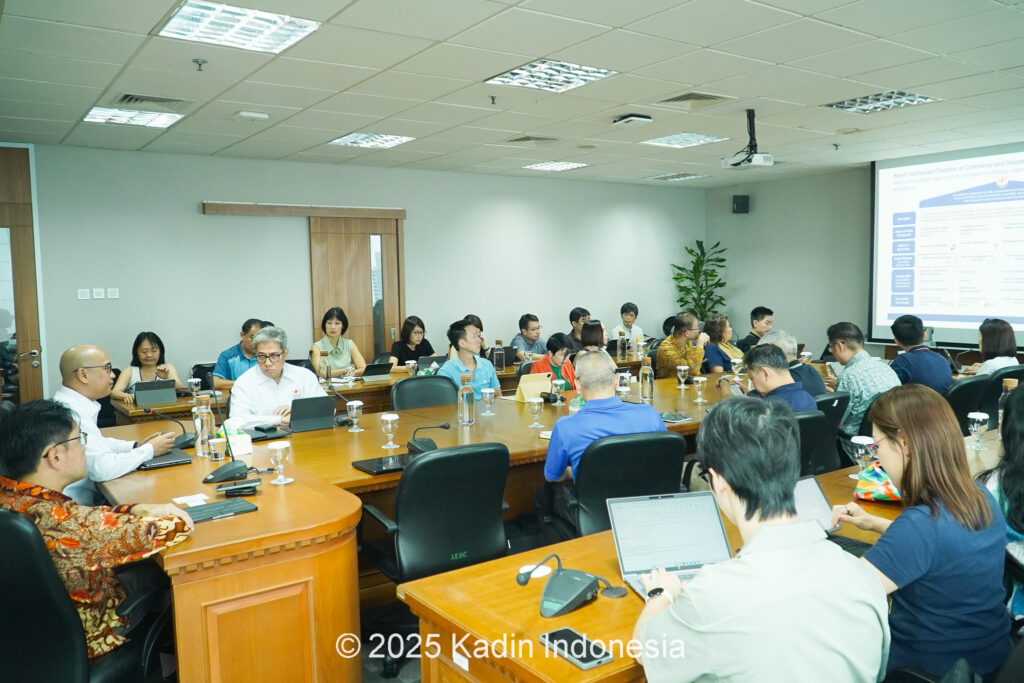
The roundtable formed part of the 15th Leaders in Urban Governance Programme (LUGP), a flagship initiative of Singapore’s Centre for Liveable Cities (CLC) under the Ministry of National Development. The LUGP convenes senior public officials to exchange best practices on urban governance, sustainability, and resilience through classroom learning and overseas study visits.
The Singapore delegation was led by Mr. Damian Chan, Chief Executive Officer of the Singapore Food Agency (SFA), who emphasized Singapore’s integrated approach to ensuring food safety, sustainability, and innovation through strong inter-agency coordination and partnerships with the private sector. The CLC organizing team included Ms. Yeon Wen Cong (Director), Ms. Nur Elysa Sapari (Senior Assistant Director), and Mr. Cedric Choo (Assistant Director) from the Ministry of National Development.
Participants of the 15th LUGP represented 30 government agencies across Singapore, including the Building and Construction Authority (BCA), Housing and Development Board (HDB), Economic Development Board (EDB), Enterprise Singapore (ESG), Energy Market Authority (EMA), Land Transport Authority (LTA), Monetary Authority of Singapore (MAS), National Environment Agency (NEA), PUB – Singapore’s National Water Agency, and the Urban Redevelopment Authority (URA). The delegation comprised senior directors, group heads, and policymakers working in infrastructure, food systems, housing, digital innovation, and sustainability.
Insights from Resource Persons
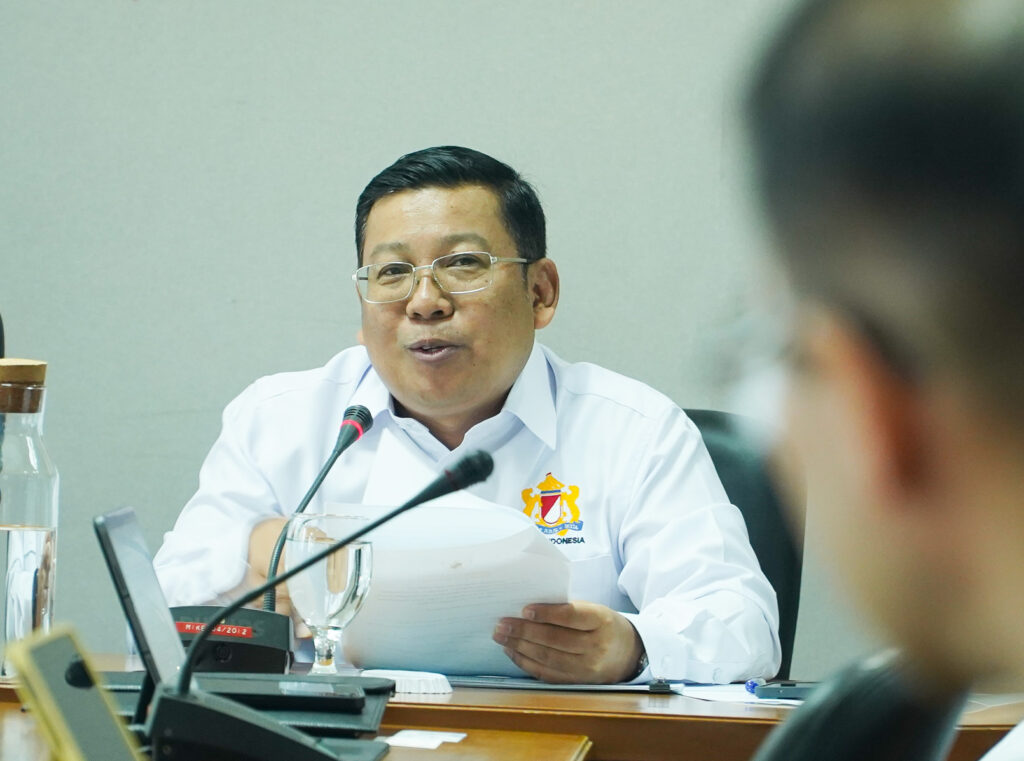
Mr. Arief Prasetyo Adi – Head, National Food Agency (Badan Pangan Nasional)
Mr. Arief underscored that food security is central to Indonesia’s economic resilience. Under his leadership, the National Food Agency (NFA) has expanded national reserves to 3.89 million tons and implemented over 9,000 Gerakan Pangan Murah activities across the country. The agency has also distributed food assistance to more than 18 million households, while developing cold-chain infrastructure and food safety laboratories nationwide. He emphasized that building a resilient food system requires collaboration across government, business, and civil society, inviting Kadin members to engage in logistics, digitalization, and nutrition innovation partnerships to strengthen food sovereignty.
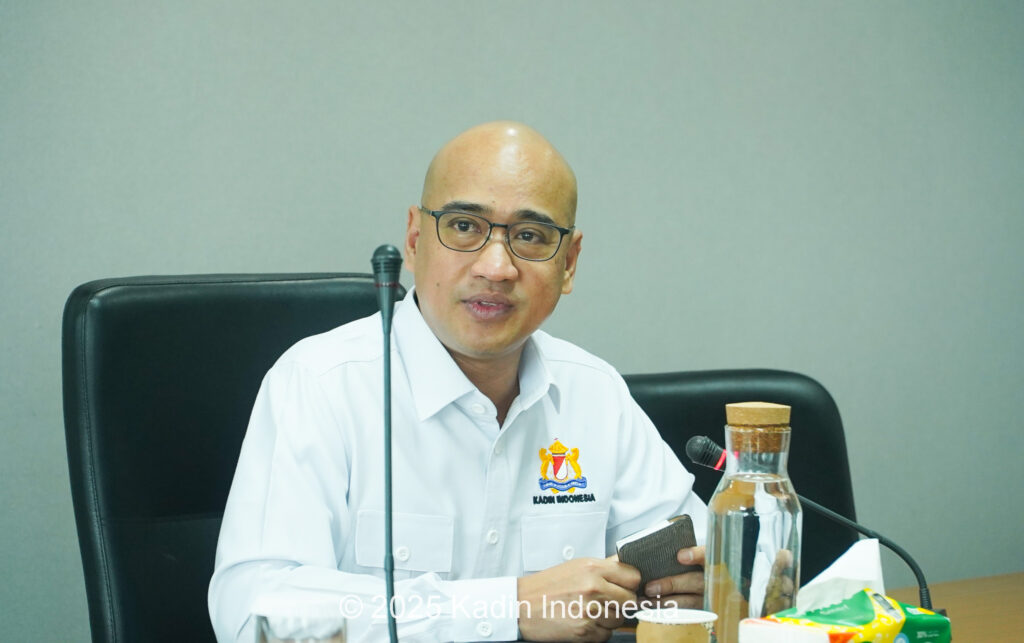
Mr. Mulya Amri, Ph.D. – Executive Director, Kadin Indonesia Institute
Dr. Amri outlined Indonesia’s current economic outlook, highlighting that while growth remains steady, productivity and human capital must increase to sustain momentum. He detailed the government’s eight acceleration programs for 2025, which include food assistance, housing incentives, and workforce programs reaching hundreds of thousands of beneficiaries. He stressed that policy continuity in 2026—such as MSME tax relief and housing VAT incentives—will be crucial to maintaining purchasing power and investor confidence. Aligning private sector initiatives with the government’s Eight Super Priorities, he said, is key to ensuring reforms translate into tangible productivity and investment outcomes.
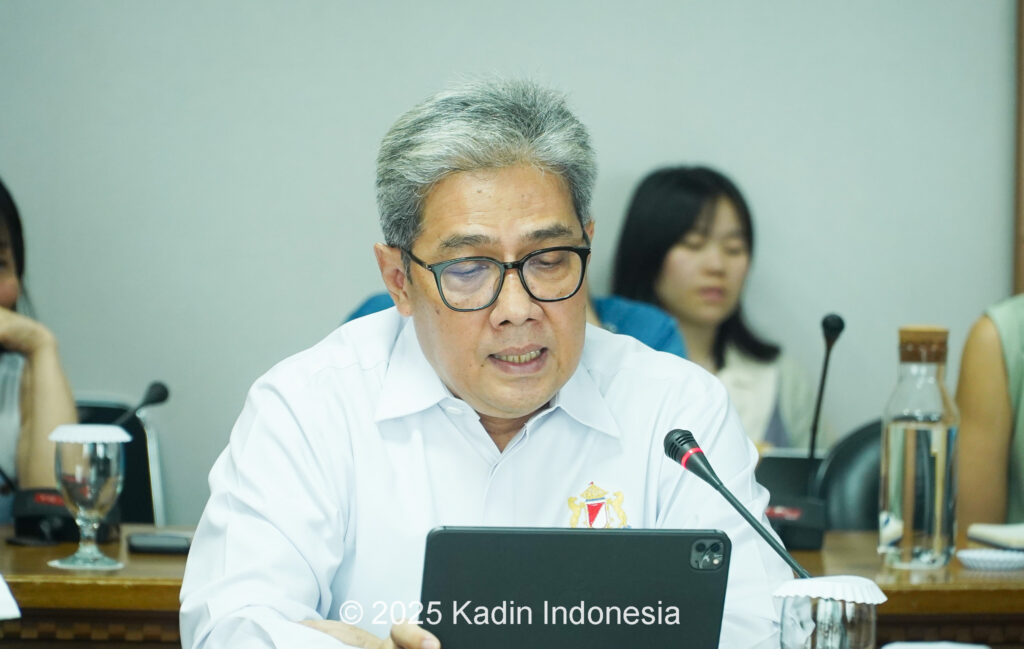
Mr. Dhony Rahajoe – Vice Chairman for Housing and Settlement Areas, Kadin Indonesia
Mr. Dhony highlighted that urban development must integrate food systems, housing, and employment to build resilient cities. He advocated for inclusive city planning that supports urban farming, local food hubs, and mixed-use housing linked to job centers. He also emphasized the importance of public–private partnerships for sustainable housing, waste-to-energy systems, and digital infrastructure, noting that cities will determine Indonesia’s future productivity. “Our housing and urban systems must enable—not burden—our food and labor ecosystems,” he remarked.
Mr. Ikhwan Primanda, Chairperson of the Standing Committee on Economic and Monetary Planning
Mr. Ikhwan addressed the long-term development framework toward Indonesia Emas 2045, emphasizing the need for 100 new urban centers to accommodate 100 million incoming populations. He highlighted phased strategies for social, economic, and governance transformation, aiming to boost industrial productivity, expand the middle class, and strengthen global and domestic economic linkages. He also underscored housing and urban infrastructure challenges, including the persistent backlog in affordable housing, and advocated for targeted interventions such as subsidized housing, mortgage support, and urban development programs to ensure inclusive growth and equitable urbanization.
Discussion Highlights
Participants discussed opportunities for private sector participation in national food logistics, cold storage expansion, and digital food monitoring platforms. The conversation also addressed how the Free Nutritious Meal (MBG) program could connect with local supply chains, as well as financing models for green housing and waste reduction. Consensus emerged on the need for stronger coordination between national agencies, local governments, and businesses to achieve food and urban resilience targets.
Key Takeaways & Recommendations
- Opportunities: Expanding partnerships in food supply chains, sustainable housing, and digital innovation.
- Challenges: Regulatory overlaps and limited financing for small-scale developers and agrifood enterprises.
- Partnership Potential: Strengthened pentahelix collaboration, blended finance for urban and food projects, and innovation in agritech and city design to enhance resilience and inclusivity.
The roundtable concluded with a shared commitment to deepen collaboration between the government, private sector, and knowledge institutions—ensuring that Indonesia’s economic transformation is both inclusive and sustainable.
